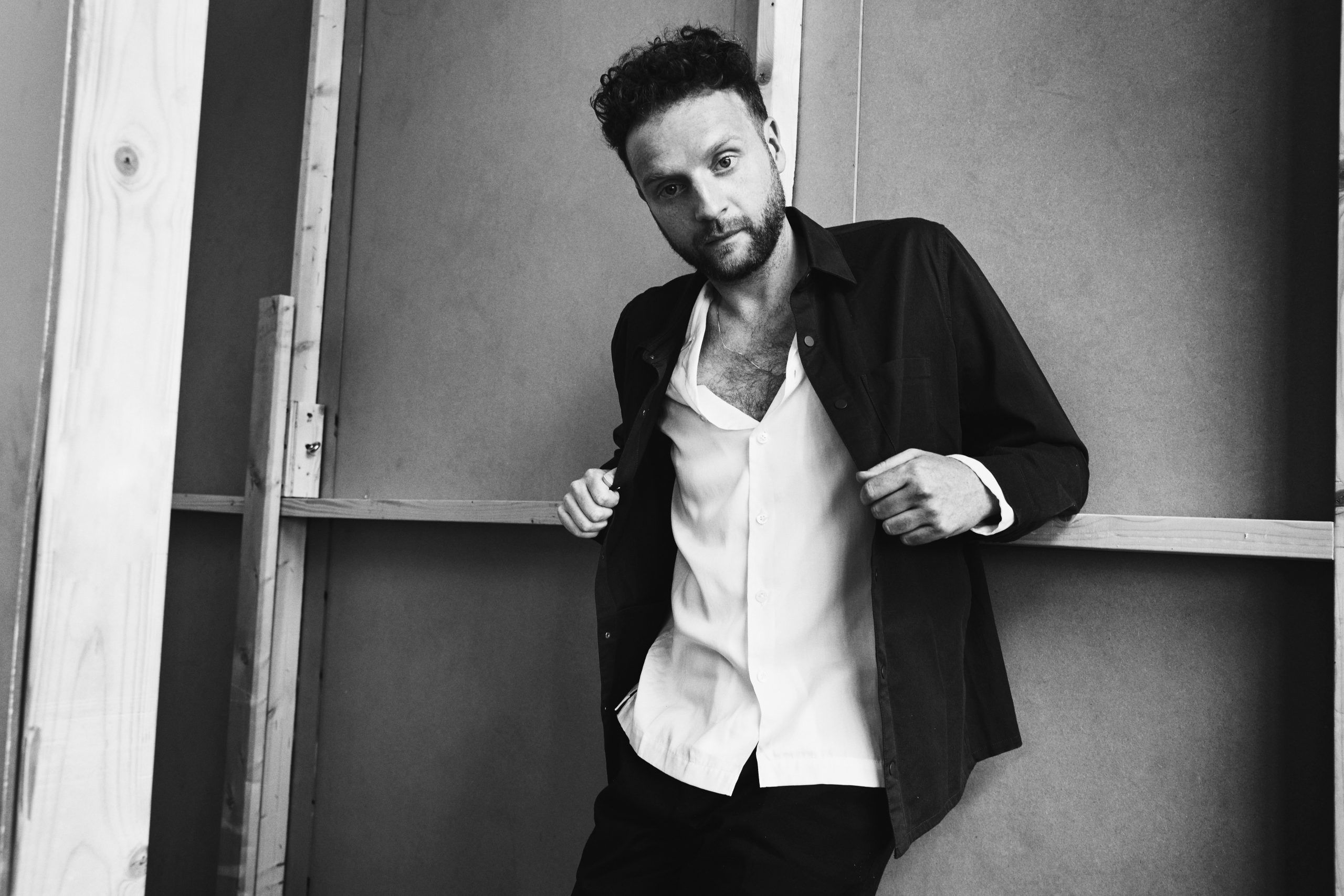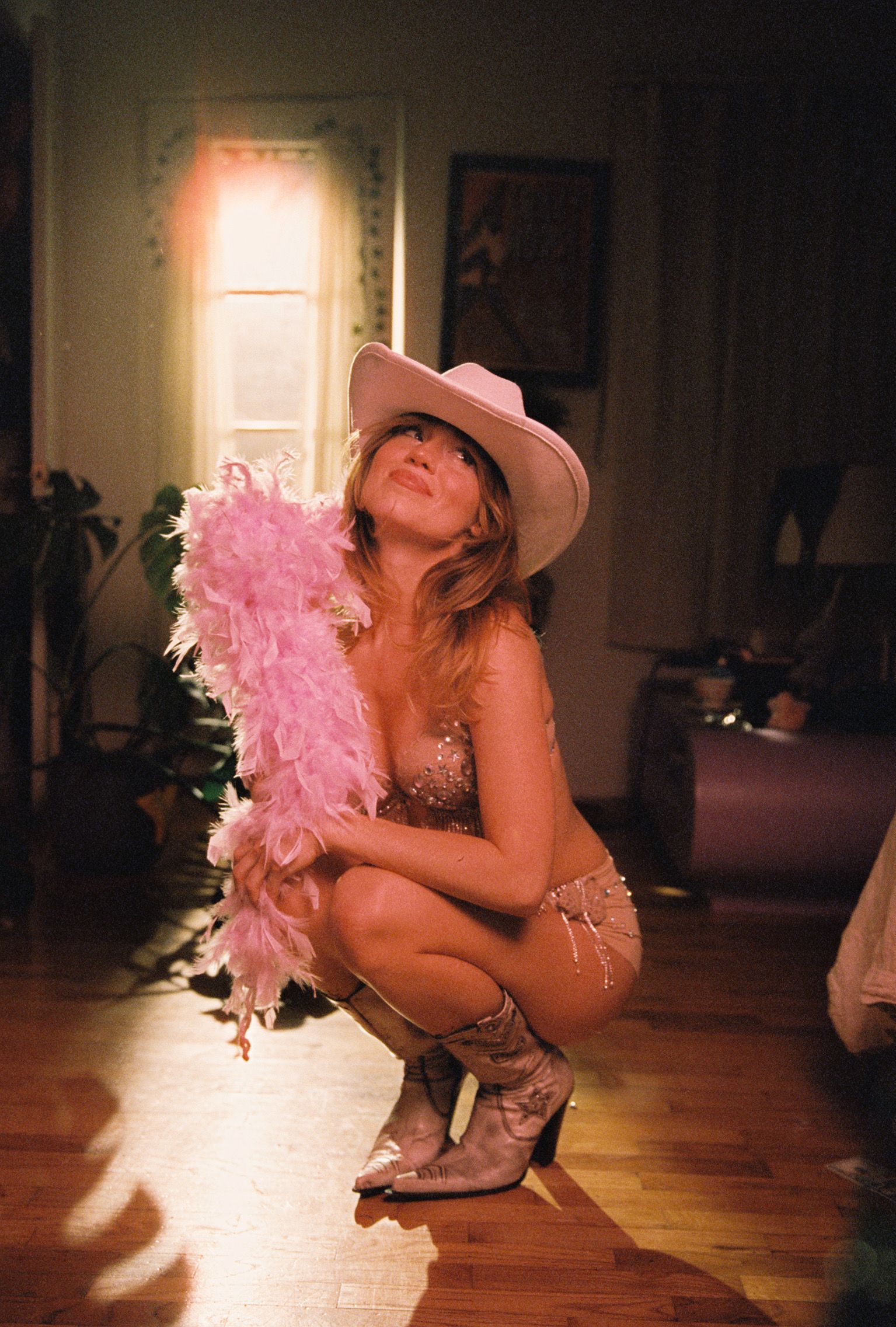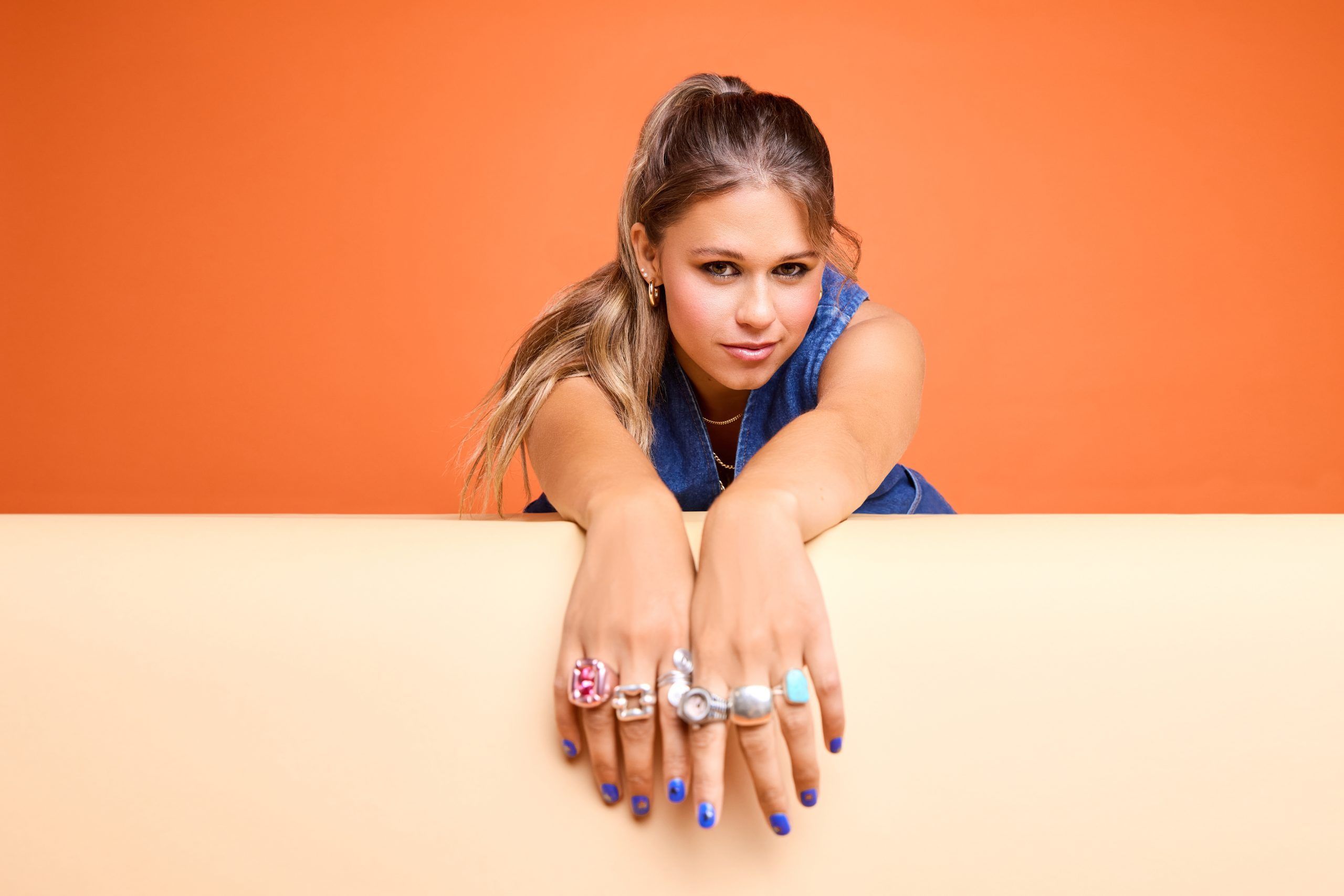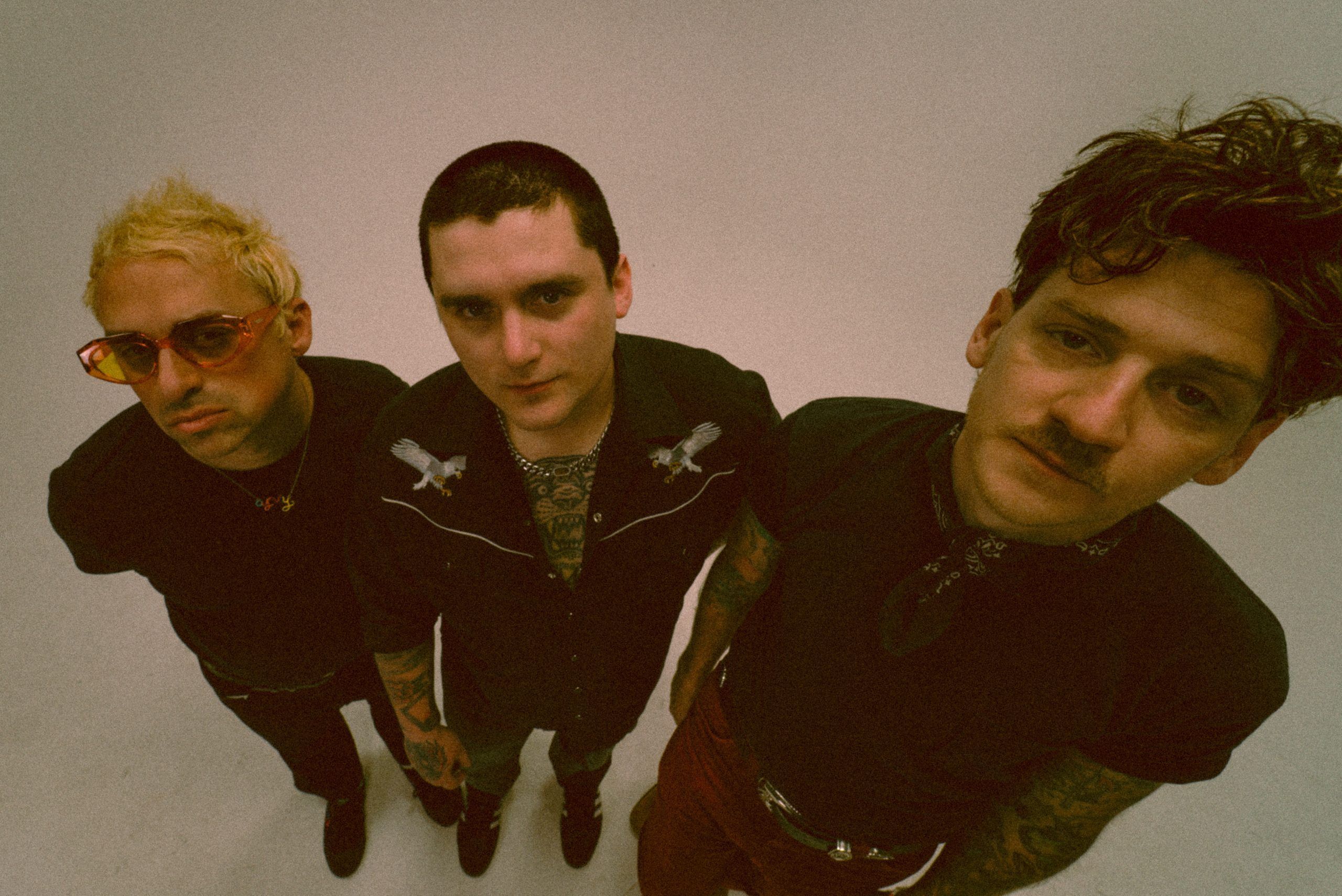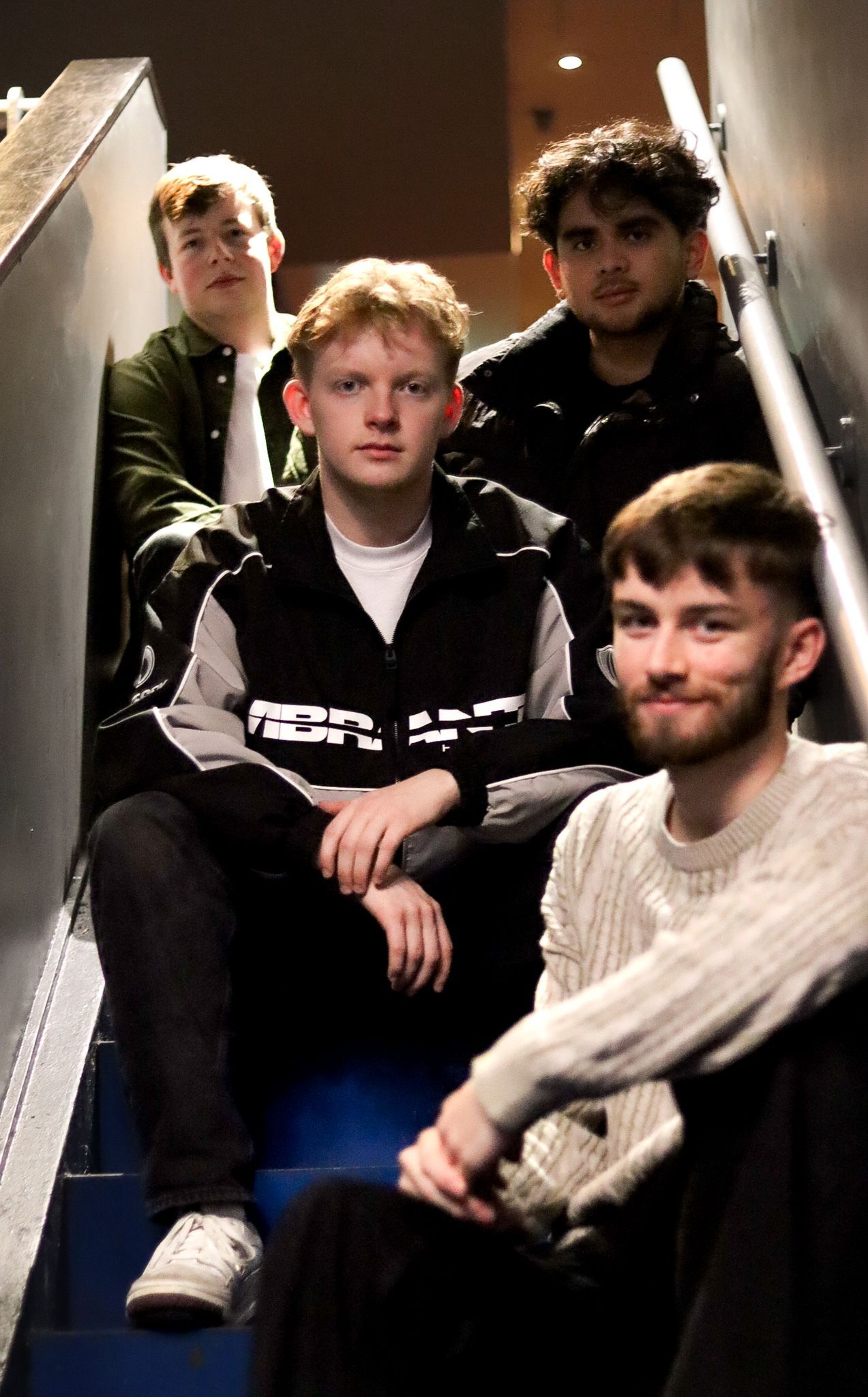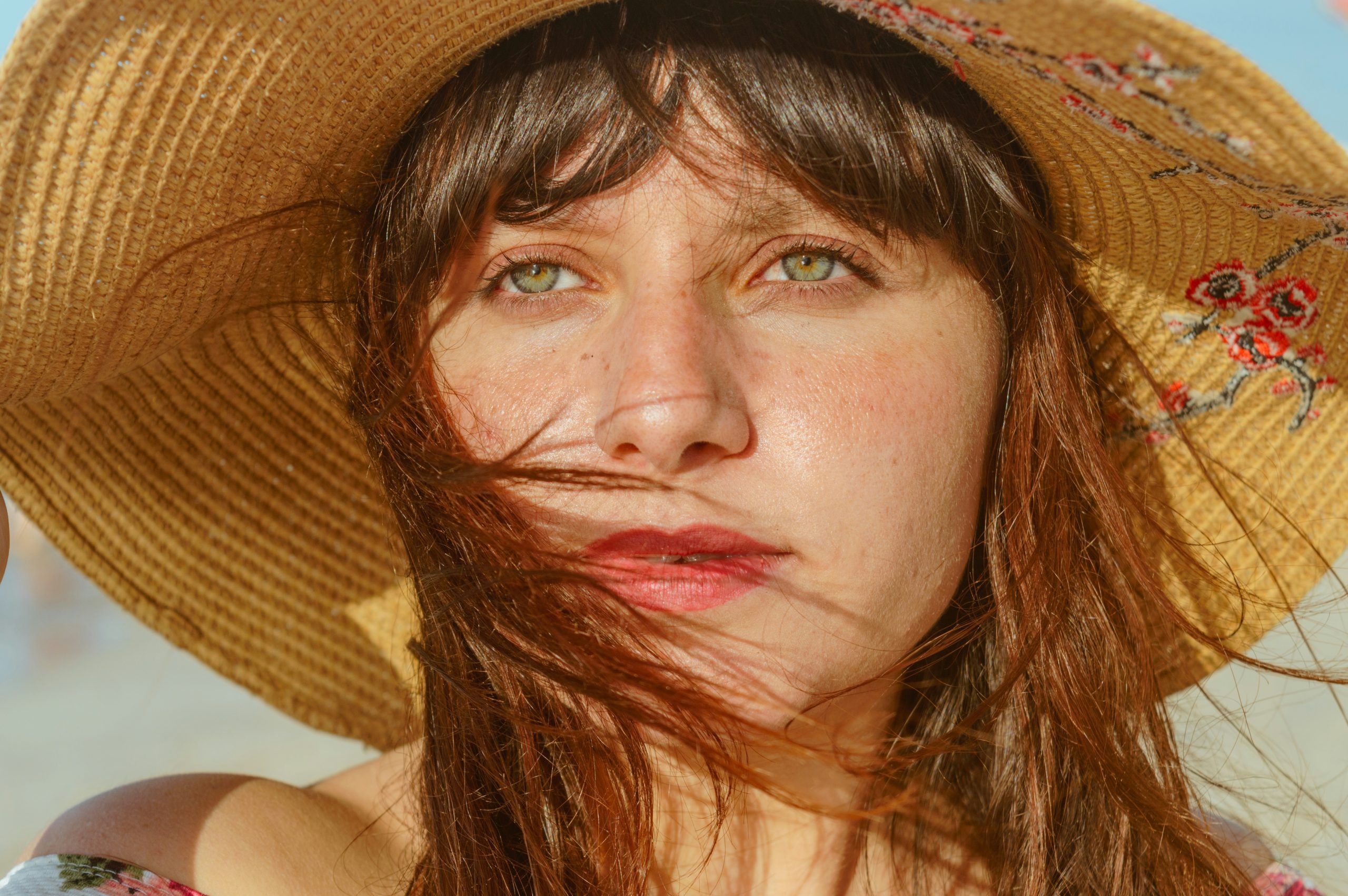Andrew Gower is a man with intent. When chatting with the Liverpool-born actor, artist, and songwriter, it’s clear that he believes his purpose is both creating art — whether that be through film or music — and surrounding himself with those who can help inspire him. As an actor, he’s known for shows like Outlander, Black Mirror, and You, but there is something special about his passion and commitment to his music that is infectious.
With Gustaffson, the band he created in 2020 with lifelong friend and guitarist James Webster, he’s in total control of everything — the music, lyrics, release schedule, and more — a unique change from the life of an actor. “That’s one of the reasons I wanted to do music,” he admits when asked about the difference between speaking someone else’s words as an actor and putting your own out there. “There’s always an element of risk with your own material, but that’s exactly why I wanted to pursue it. I’ve been an actor for hire for 15 years, but I’ve been writing since I was 15.”
The band’s debut EP, The Jacaranda, was an immediate hit, earning praise across national radio stations and even securing a spot as ‘Record of the Week’ on Guy Garvey’s Finest Hour (BBC Radio 6). Now, as the band gears up to release their first full-length album, Black & White Movie, Gower brings his cinematic storytelling to life through music, blending the emotional depth of his acting experience with the timeless sounds of his band.
1883 Magazine’s Kelsey Barnes sits down with Andrew Gower to discuss Gustaffson’s latest single “Flowers,” what it’s like to toe the line between acting and music, and more.
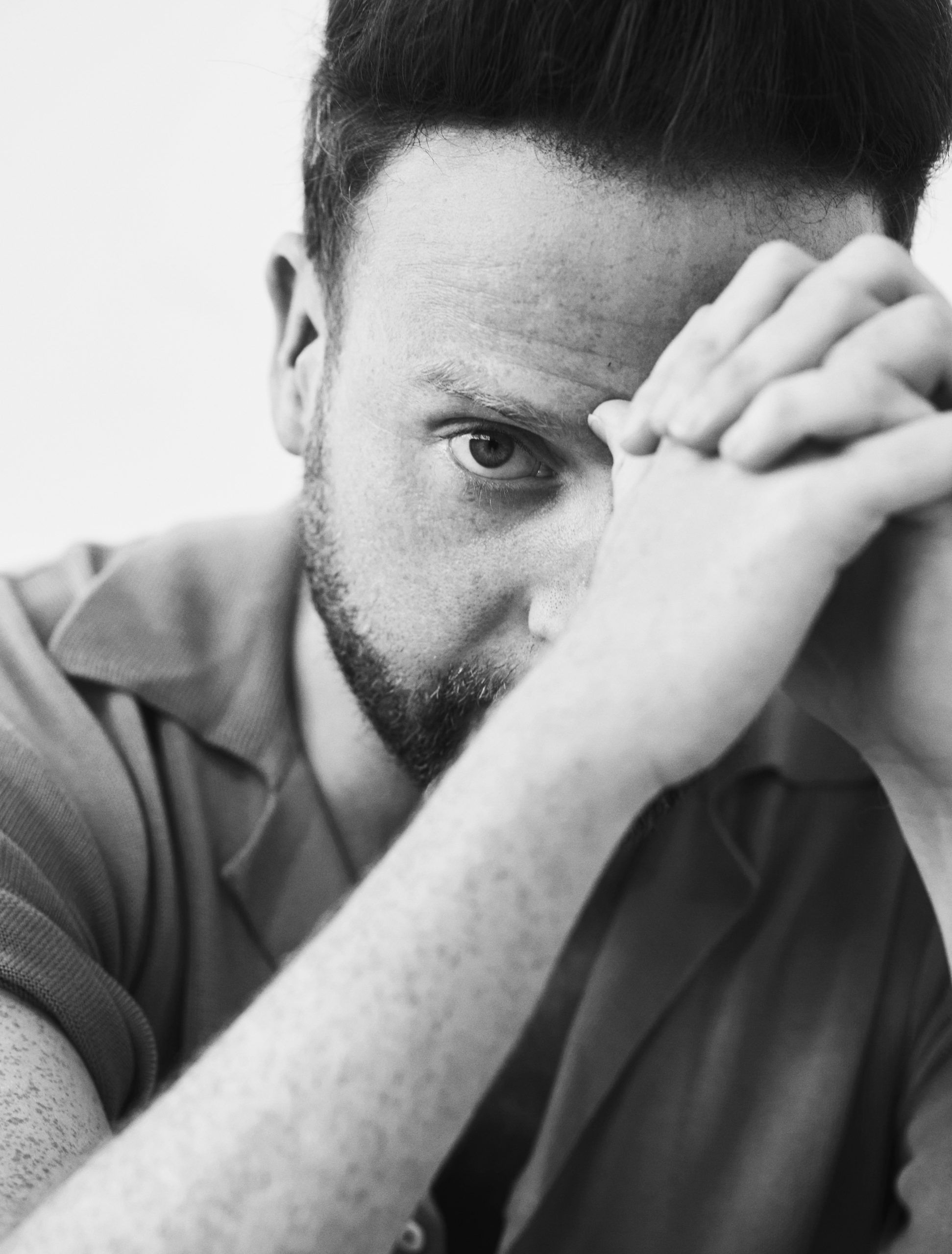
Andrew! I know it’s taken us a bit to arrange this chat, so thank you for your patience! [Laughs]
[Laughs] No worries at all. Where are you right now?
I’m in London!
Oh, amazing! Where are you from?
I’m from Toronto but I have family in Manchester — I was just there a few weeks ago.
I’ve got family in Manchester. My brother lives in Monton, just outside the city center, near the Northern Quarter. I’m always in Manchester with the band, so I love it there.
I love the North too! My family’s just outside of Old Trafford.
Oh, that’s funny. That’s where our bassist is from! Small world.
We probably all know each other [Laughs]! But yeah, I love the North. If I didn’t have so much stuff here, I’d probably just live there. It feels like going home.
I’d be the same. It’s amazing. Ian McKellen said that when you get into a taxi, someone automatically calls you “love” without even knowing you. There’s something beautiful about that kind of warmth.
Yeah, everyone’s so friendly, so nice. I was just there last month for a music festival, Beyond the Music, and it was just so nice to be there. The North just feels right. Since I’m from Toronto, I think the North is where I’m supposed to be.
Toronto is an amazing city. It’s funny how you can just feel connected to a certain place. I’m so glad we managed to do this, though. Thanks for making it work.
Oh no, it’s all good! I shouldn’t be complaining about my schedule, especially to someone who’s an actor and musician!
From one busy schedule to another, we’re aligned, and we’re here.
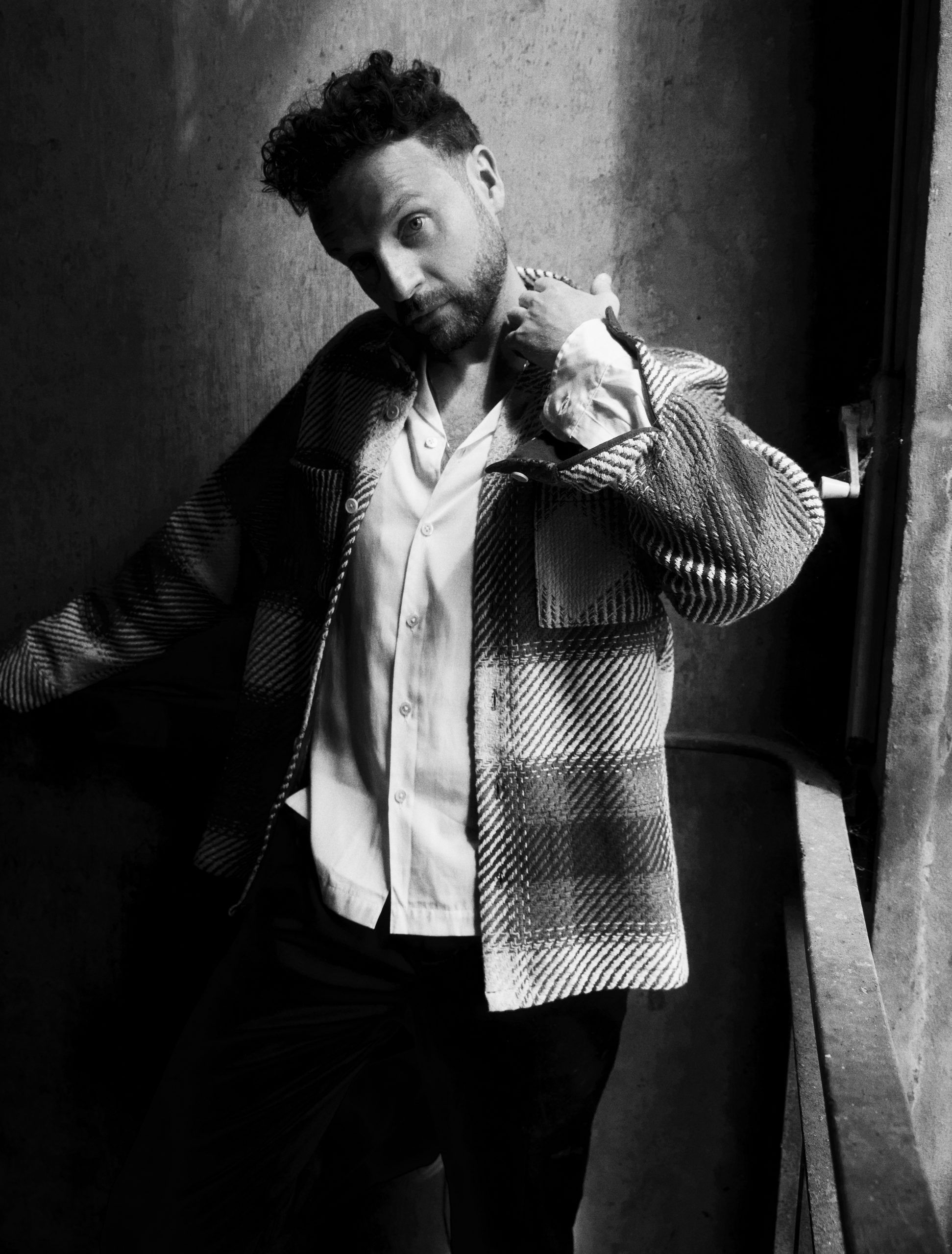
You released your debut single back in 2022 after starting your band Gustaffson two years prior. How have you all grown as artists between those four years?
I think the initial thing was that we just said we were going to do it. We were apart for a while, so we couldn’t get together as an actual band. It started with Webbo [James Webster] and me, so the biggest growth is that we now have three other band members which is amazing. If you had asked me during COVID that I’d be playing music with a bassist, a pianist, a guitarist and a drummer… That was always my initial dream — to be part of a band that I can write songs with. We never imagined making an EP like we did with The Jacaranda, which we recorded at the Blue Print Studios in Manchester. I think from that point onwards, we wanted to figure out what we should do next and an album seemed like the obvious choice. We went away, did loads of live videos in locations we always wanted to play, and we’ve been heading towards the ‘North Star’ which is the album. I don’t want to use the word organic, but it does feel like there’s been no pressure because it’s my project. We’re unsigned and there’s no manager. It’s felt like I’ve been able to, for the first time in my career as an artist, perform something organically.
Other actors who are also musicians have discussed the vulnerability in music versus acting. As an actor, you’re performing someone else’s words, but with music, it’s all coming from you, which can be quite nerve-wracking. How have you navigated that different aspect of creativity?
It’s funny, isn’t it? When you talk to playwrights and TV writers, it’s their words on the page. If there’s a problem, it’s often seen as the writing being bad. For me, that’s one of the reasons I wanted to do music. There’s always an element of risk with your own material, but that’s exactly why I wanted to pursue it. I’ve been an actor for hire for 15 years, but I’ve been writing since I was 15. I have this poem that reflects my feelings: “I’ve been writing, but I’m still years behind all the ones who stuck it out at 17 years old.” That poem has always stuck with me. I have loads of material I’ve written over the years. So, when I decided to form Gustaffson, it was about sharing my stories.
Yes, there’s a risk in sharing personal stories and being the face of Gustaffson, but that’s what I wanted. I believe that when you’re making art, your feet should never touch the ground. If you’re too comfortable, you’re not challenging yourself. Since starting Gustaffson in 2020, I’ve learned so much, from recording the album to figuring out the intricacies of music production. It can be daunting—like when I had to learn what a metadata sheet is or how to sort one out for music, or understanding what a radio plugger does—but I’m doing it all for something I believe in. When my feet are off the ground, that’s when I create my most exciting work.
Yeah, it must be interesting to be doing it all yourself without a manager. I managed someone very briefly during the pandemic as a fun side project, and it was a lot of work—learning about streaming, uploading songs, and everything needing to be done properly. How has navigating the business side of things been for you?
Yeah, it is interesting, and at times, crazy. It was like, “Okay, where do I start?” But now we’re at a point where we’re ready to bring in people to help us. I feel like I’ve learned enough to understand who the right person for the job would be because we’ve built this from nothing. I’ve produced music videos and a couple of short films in the past, and I enjoy that ground-level collaboration. It’s like, “Okay, we’re going to put on a gig here, so who do I want to be in the gig? Who do I want to perform with Gustaffson?”
I’ve learned a lot about the industry, as I’m sure you have from your experience. But at the same time, I think it’s going to be really interesting when people come in. We’re going to need help soon because it’s become a bit of a beast that I’m struggling to handle. For instance, earlier this year, I was filming in Belfast, and Gustaffson had to go on hold. So, it’s nice that we are welcoming people into the team who can hopefully keep it going. If I go away for a month filming, it doesn’t just disappear.
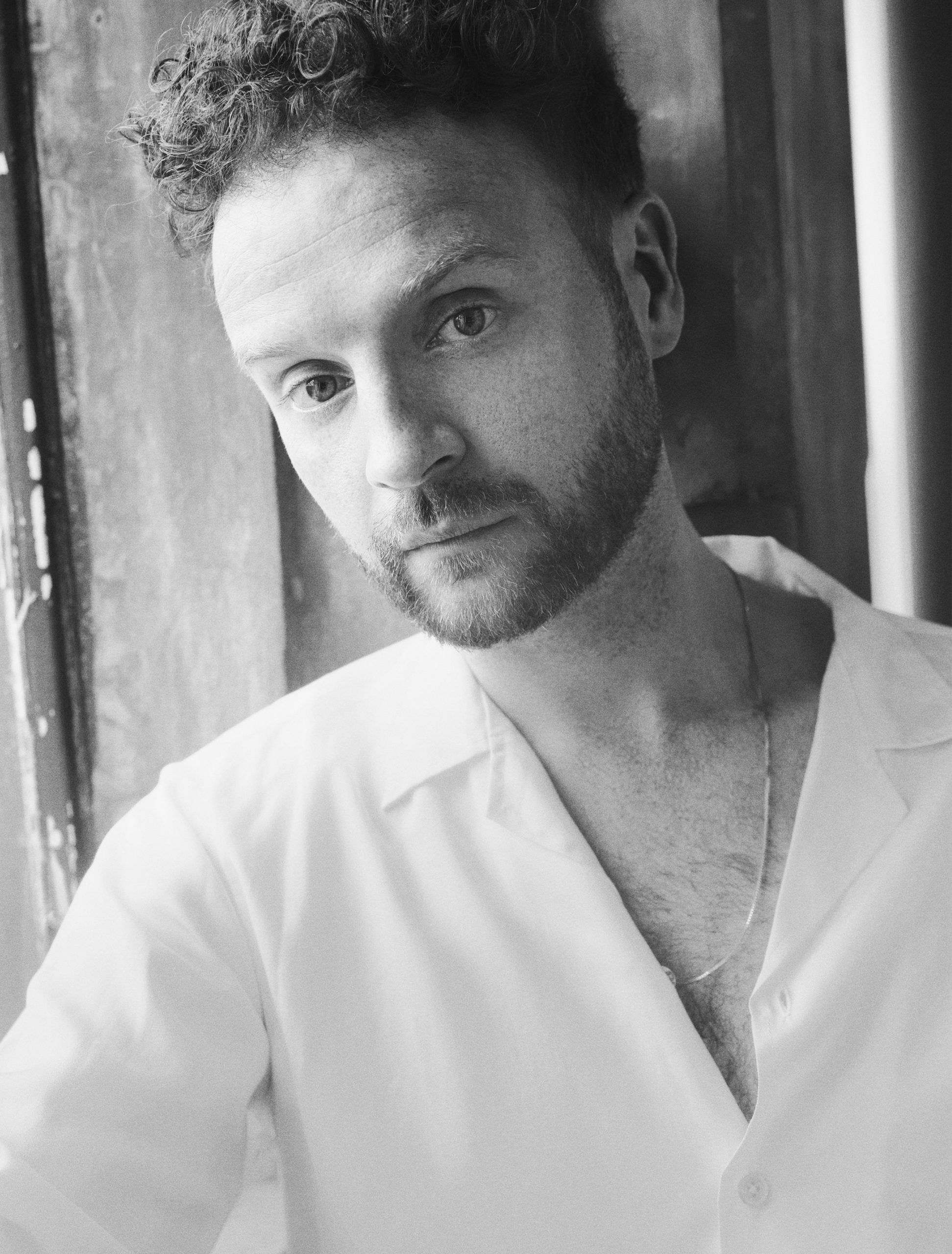
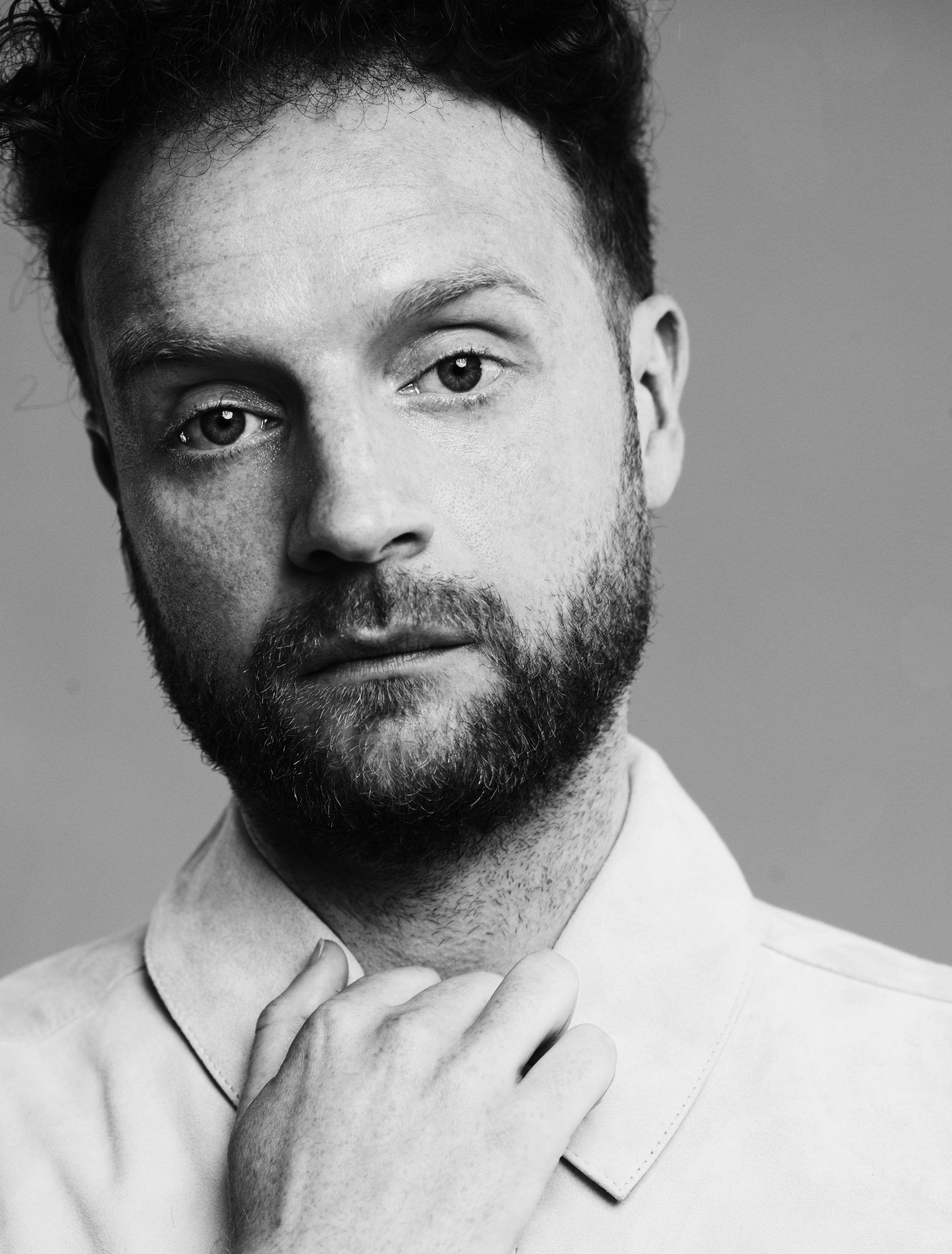
Going back to when you were 15, you started writing songs then. What were you listening to, reading, or watching at the time that informed your songwriting?
I go back to George Orwell a lot. I read “1984” and “Animal Farm” at school, and his work inspired me a lot, just as it did many other artists like David Bowie and The Beatles. Orwell’s literature doesn’t spoon-feed the audience; it asks questions, which I think is what the best art does. Growing up in Liverpool, I was always listening to The Beatles, The Stone Roses, George Michael (who was big in my house), and Simon and Garfunkel. The best thing about their music is that they don’t give the audience answers. When people ask me what a song is about, I refrain from explaining it because once you reveal it, the mystery is gone. I always say, don’t kill the mystery.
And you want people to come to their own interpretation because it could mean something different to them. As soon as you tell them the “correct” interpretation, it can make them feel like their own understanding was wrong.
Exactly. In school, we’re taught that there’s a correct answer, and if you get it right, you pass the test. But in art, there’s never a correct answer. The music and literature I love always made me ask more questions rather than find answers. The best art doesn’t provide answers; it provokes more questions. We live in an age where everyone wants to know exactly what something means or the story behind it. As a band, we’ve decided that with our album, we won’t pander to the audience or kill the mystery. If you kill the mystery, there’s nothing left.
I know you posted a poem with the original lyrics for “On Broadway.” Have a lot of your songs started with little scribbles like that, where you’ve read over them years later and thought, “I can turn that into a song”?
Yeah, definitely. I don’t play an instrument, so I think a lot in melodies. Webbo has known me since I was 12 years old, so he can almost telepathically read my mind as a guitarist. I usually come to the rehearsal room with a distinct melody or poem in my head that I’ve almost written a tune for. I then translate that to the band. Sometimes, I have a poem and then hear a chord that Liam plays on the piano, which inspires that poem to come to life. If you saw my office space, it’s full of old notebooks that I’ve been writing in since I was 15. Many of them are poems that haven’t found a tune yet, while others quickly come to life from day-to-day experiences, like a trip on the tube. I write a lot on trains as well; I’m on trains a lot.
Yeah, that sounds like a productive way to spend time on the train [laughs].
Yeah, if you’re ever on a train from London Euston, you’ll probably see me with a coffee, hunched over, writing in a notebook [laughs].
I watched the music video for “Flowers,” and it’s so beautiful. When you’re writing songs like that, do you already come up with visuals in your head? Or do you approach the music video aspect differently?
That’s a great question. I definitely think visually. For songs like “On Broadway” and “Flowers,” I was so deep into the album that the visuals came as afterthoughts. For the “Flowers” video, the song itself is about finding the extraordinary in the ordinary. The everyday gesture of buying someone flowers can hold profound emotions. I wanted the video to reflect that—set in an ordinary location where something extraordinary happens.
Working with Kiran Sonia Sawar and my production company, and actor Jamie Harris, the idea grew into its own unique creation. Collaboration is key for me. I knew I wanted to work with film directors for the videos, but I also wanted their input. I want to collaborate. It’s about asking them, “What does this song mean to you?” and building from there.
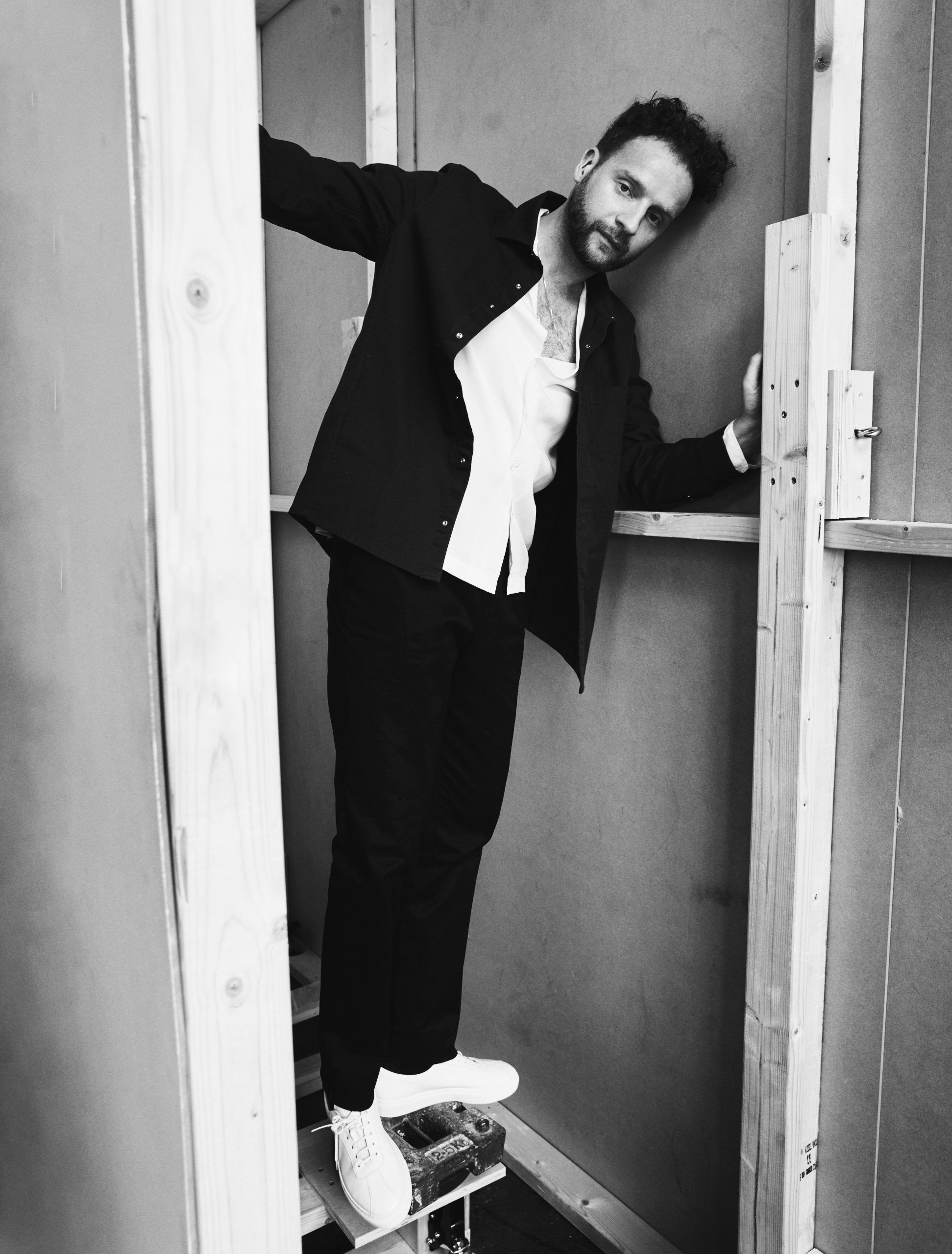
Collaborators are really important to you. I noticed Daniel Ings was in your music video for “On Broadway,” and you have a composer on this song. What is it about collaboration that excites you as an artist and actor?
Yeah, I think collaboration is what I was put on this planet for; it’s where I get my energy from. There’s no single right idea, just better ideas. I get the biggest thrill from propping someone up and giving them the space to take risks and make real art. Bringing in people like Ben McCreary, who does incredible scores for TV, was such a coup for us. Having him want to be on the track was amazing.
Working with Daniel Ings and Jamie Harris in these videos is a similar thrill. Sometimes, people can put up walls to collaboration due to ego, especially in music. They might say, “This is the right answer. This is what it is.” But collaboration elevates your work and takes it to places you could never imagine. The same goes for acting—people bring their own imaginations and magic into the space, and that’s what makes it so exciting.
Your debut album, Black & White Movie, is coming out next year, which must feel like a long time coming since I think you recorded it in January of this year. Is that right?
We recorded it in January 2024 and finished it then. It’s coming out in March 2025. The third single comes out in January, and we’ll announce the pre-save for the album then. So, it’s a mad thing. I’ve been ready to share the album since January 2024, but I’ve had to sit on it, make music videos, and seek advice from people. I’ve never been more excited to share a piece of art in my life. I’m just so excited to share this album.
You’ve described it as an “original vintage record in a modern, algorithmic world.” What does that mean to you?
You know, with all the 20-second TikTok videos, 30-second snippets, two-minute radio tracks, and AI-driven content, this record was about bringing together collaborators who I believe are some of the best artists I know. We tried to make it a true version of storytelling, going back to the music I love—where it was all about the lyric book, and each track felt like its own movie.
We used modern studios and technology, but we tried to keep the essence of storytelling intact. I want to create a record that allows an audience to lose themselves in it. They might fall in love with just one track, or maybe all of them, but I hope there’s something for everyone to connect with. I don’t want it to be constrained by radio formats or fitting into two-minute slots. I think music should be made for the right reasons—not just to fit an algorithm or pitch for streaming services. Art should be something people live with and invest in, not something that’s just made to check a box. It’s for an audience, and it’s meant to be original and vintage in that sense.
Is there a through line that connects all the songs together? I know there are about 13 songs on the album.
Yeah, there are 13 songs. I guess they’ve all been written in a notebook, and each one is its own film, its own story. Storytelling is really the throughline that connects them all. It could be about a place or a person, but ultimately, it’s about telling original stories. So, yeah, storytelling is what links them together, and each song is like its own movie.
I know you’re playing a few dates—Liverpool, Manchester, and London. Is that right?
Yes, we have a sold-out show tomorrow in Liverpool, a sold-out show in London, and we still have some tickets left for Manchester.
Amazing! I’ve watched a few of your live performances on Instagram, and I wanted to ask how performing live has informed the production of the songs. How do they take on a new life when you play them live?
That’s a great question. The lucky thing with a lot of the tracks on the album is that we had the chance to sit with them for a while as a band before going into the studio with Craig from Elbow. We gave them life in front of an audience, and as I said earlier, the songs are made for an audience. They’re meant to be performed. We wanted to capture that live feel in the album, so it feels like the audience could almost be there with the band.
It’s been great to play live in front of audiences and hear their responses—what moves people, what resonates with them. Some songs, like Northern Baby in Manchester, really connect with the crowd, while others, like Kingdom, speak more to people in London. It’s a nice feeling, and as a band, we’re getting to that point where we can play in iconic venues and feel the energy of the building. Each performance is different, and it’s so immediate. Similar to theatre, you get an immediate response to the stories you’re telling. In TV, I’ve gotten used to waiting a year for people to see something, so getting that instant feedback is fantastic.
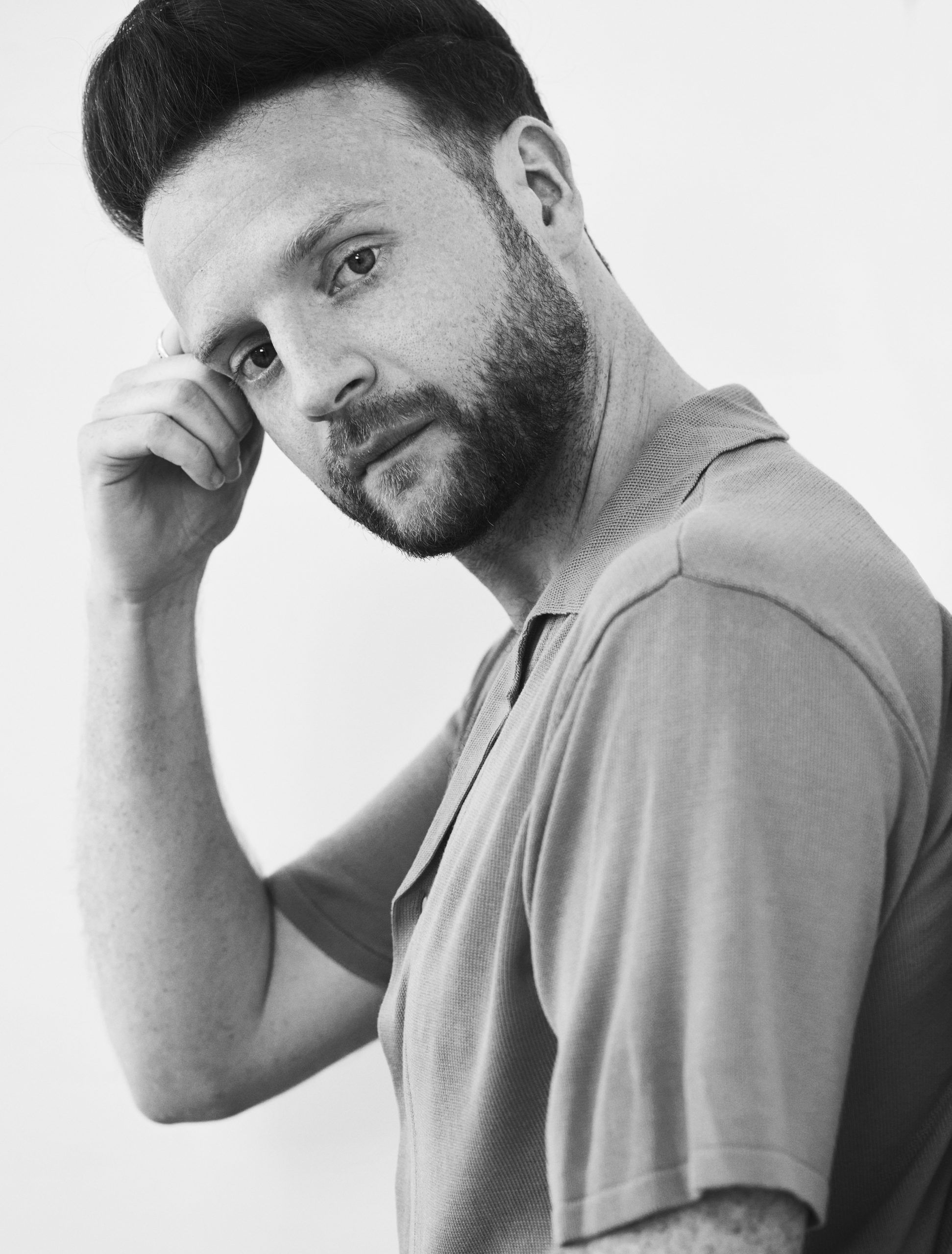
If you could manifest something for yourself in 2025, what would it be?
That’s a really good question. I think I would manifest an active audience for discussion. I’d like to resonate with a broad audience, whether that’s live or through some crazy platform where people can see stuff. What I love about music is the sharing of it. My brothers would sit me down as a kid—or even now when I visit—and play YouTube videos for me, saying, “You need to watch this.” That’s the kind of story I want to manifest—people having the urge to share our music. I want strangers to sit down with their family or friends and share Gustafson with them. That’s what I want.
Well, that’s amazing. We’ll manifest that for you.
“Manifesting” always makes me genuinely think about it. It’s such a deep word, like, let’s stop and really manifest.
Exactly! Thank you so much, Andrew. I’m so excited. I’m heading back to Toronto, so I’m going to miss your London show, unfortunately, but maybe next year you’ll do an album release show in London.
We’ve got an album launch next April, and then we’ve got some in-store stuff in London. But if you’re up in Manchester on the 15th, you’re more than welcome to join. And there’ll be more gigs next year too!
Flowers is out now.
Interview Kelsey Barnes
Photography David Reiss

